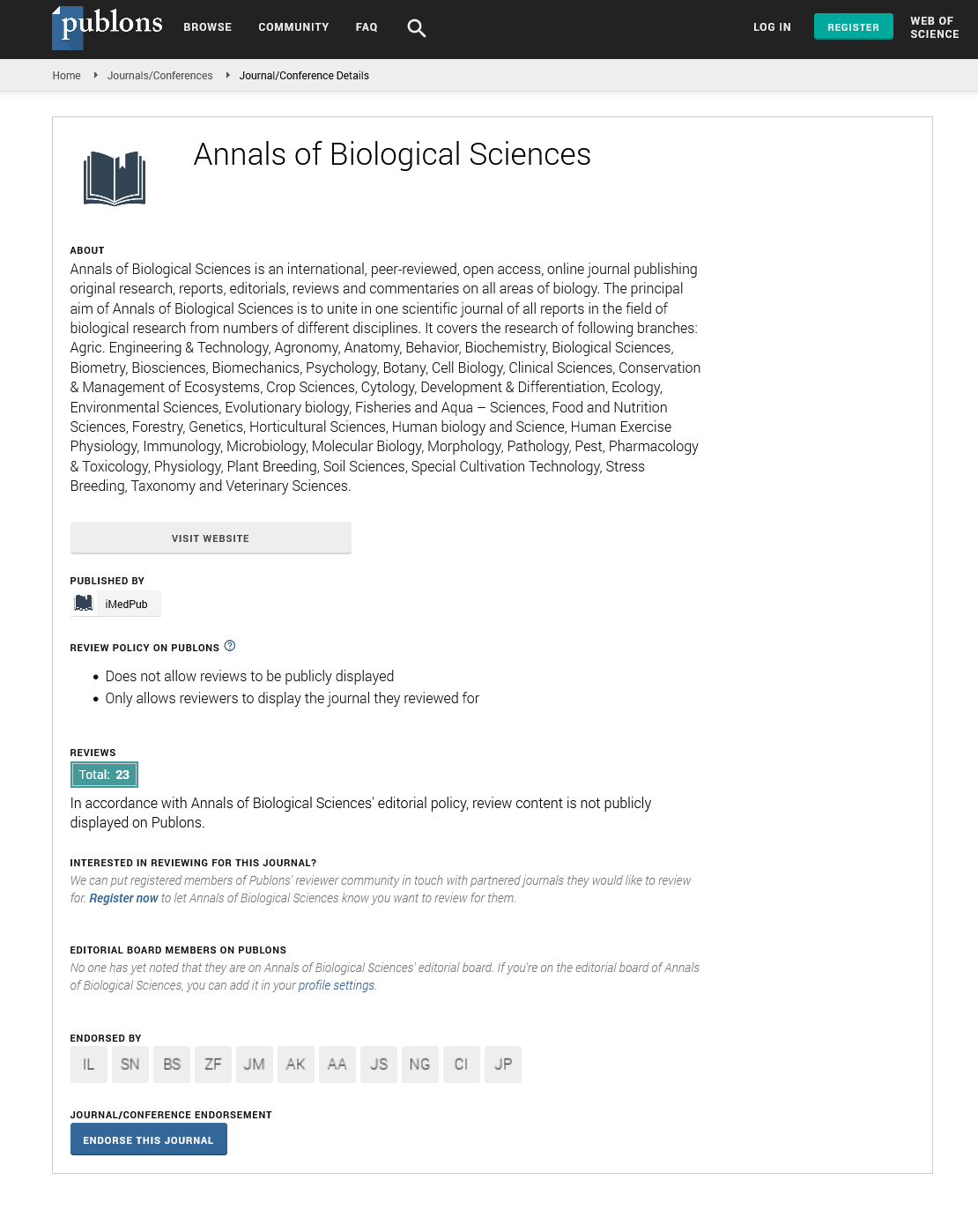ISSN : 2348-1927
Annals of Biological Sciences
Abstract
Potential Health Risk from Heavy Metals via Consumption of Leafy Vegetables in the Vicinity of Warri Refining and Petrochemical Company, Delta State, Nigeria
This study aimed to investigate the concentrations of lead (Pb), cadmium (Cd), nickel (Ni) and chromium (Cr) in the commonly grown and frequently consumed vegetables in two communities around the Warri Refining and Petrochemical Company, Delta State, Nigeria and to estimate the potential human health risks via consumption. Leafy vegetable samples comprising of Telfairia occidentalis (fluted pumpkin), Vernonia amygdalina (bitter leaves), Ocimum gratissmum (scent leaves), Amaranthus hybridus (green African spinach) and Amaranthus viridis (red African spinach) were collected, digested and analysed using Solar Thermo Elemental Flame Atomic Absorption Spectrophotometer (model: S4=71096). Results from the study were used to estimate the human health risk of these heavy metals. The result showed that the mean concentrations and (range) of total Pb, Cd, Ni, and Cr were 0.059 (0.019-0.178), 0.076 (0.010-0.230), 1.037 (0.411-2.531), and 1.337 (0.383-2.331) mg/kg, respectively. The concentration of Pb, Cd, and Ni were below the permissible limits recommended by WHO/FAO, EU and CHINA. The concentration of Cr in all the samples exceeded the limits set by EU and CHINA, but was below the limit recommended by FAO/WHO. The human health risk was calculated using toxicological indices such as Estimated Daily Intake (EDI), Target Hazard Quotient (THQ), Hazard Index (HI) and Lifetime Cancer Risk (LCR). From the results, the EDI of Pb, Cd, Ni and Cr were mostly below the Tolerable Daily Intake of metals, the THQ in the analysed samples were less than 1, the HI were also less than 1. The LCR of Pb and Cd were within the predicted permissible lifetime risks for carcinogens as stated by USEPA. The result from this study shows that there may be slight heavy metals toxicity.
Author(s): Patrick Iwuanyanwu Kingsley Chukwuemeka, Nwokeji Uchenna Hephzibah
Abstract | Full-Text | PDF
Share This Article
Google Scholar citation report
Citations : 406
Annals of Biological Sciences received 406 citations as per Google Scholar report
Annals of Biological Sciences peer review process verified at publons
Abstracted/Indexed in
- Google Scholar
- China National Knowledge Infrastructure (CNKI)
- WorldCat
- Publons
- ROAD
- Secret Search Engine Labs
Open Access Journals
- Aquaculture & Veterinary Science
- Chemistry & Chemical Sciences
- Clinical Sciences
- Engineering
- General Science
- Genetics & Molecular Biology
- Health Care & Nursing
- Immunology & Microbiology
- Materials Science
- Mathematics & Physics
- Medical Sciences
- Neurology & Psychiatry
- Oncology & Cancer Science
- Pharmaceutical Sciences
